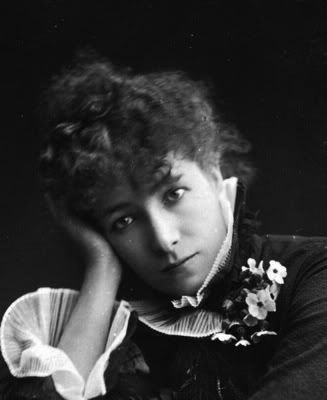More on the Verdurins' "little group".
Dr. Cottard is a hilarious caricature, completely lacking grace and confidence in any social setting ("he was no more confident of the manner in which he ought to conduct himself in the street, or indeed in life generally, than he was in a drawing-room" p.282), which is almost the opposite of Swann, who is comfortable everywhere.
Saniette has lost favor with the group and is soon to be booted, most likely because he is too deep and has too much of a soul, and thus does not fit in. He "burbles" his speech in a "delightful" way, which is the opposite of the pianist's aunt (the "concierge") who slurs her speech to hide the fact that she knows nothing.
Mme. Verdurin seems to feel more loyalty to (from?) the gifts in her home that came from the "faithful" members of her group. I can only assume that she has some gifts that are from "faithfuls" she has dropped or been dropped by. She even seems to have some sort of a love affair with the fruit carved on one of the chairs. The language is so sensual at that moment that there may be something I'm missing, or we may just be seeing a character trait of Mme. Verdurin. She can have more control over inanimate objects and without risking rejection?
Then Swann and the Sonata in F. Swann has become lazy in life: he refrains from forming opinions or taking part in society and has ceased to have any goal. On p.298 he is described as "morally barren", and he is not even working anymore, as he long ago gave up writing his paper on Vermeer. Now the Sonata in F has given him back some life, "indeed this passion for a phrase of music seemed, for a time, to open up before Swann the possibility of a sort of rejuvenation" (p.296), somewhat like the effect that viewing the three steeples has on young M and his struggle with writer's block.
The Sonata also serves well as an analogy for life and involuntary memory: difficult to assess the first time through, the impressions come on faster than they can be discovered, it leaves the listener the "architecture" by which it can be assessed on a second listen. Much like a second look at life through our memories, and Swann's immediate recollection of the strains in the Sonata bring to mind M's sudden flush of memory upon tasting the Madeleine cake.
"But the notes themselves have vanished before these sensations have developed sufficiently to escape submersion under those which the succeeding or even simultaneous notes have already begun to awaken in us."But while the "little clan" can tell him the name of the work and the composer, they are unable to discuss it beyond that. In reality the composer and piece are fictional, but there has been some discussion about their models.
•••
"And so scarcely had the exquisite sensation which Swann had experienced died away, beofre his memory had furnished him with an immediate transcript, sketchy, it is true, and provisional, which he had been able to glance at while the piece continued, so that, when teh same impression suddenly returned, it was no longer impossible to grasp." (p.295)
Swann seems to have passed the test and been accepted into the little clan, although the Verdurins completely miss his character, believing him to be lacking depth. Mme. Verdurin does tell Odette that she may bring friends like that any time she wishes, though, implying a lack of respect for fidelity, an odd trait for a woman who demands complete loyalty from her "subjects" as she does now from Swann ("provided he doesn't fail us at the last moment." p.304), but this is not the first time we've seen her as the hypocrite.
Satire of the salon. Proust is poking fun at the Salon lifestyle in which he actually took part himself. The the members of the little clan can barely talk to each other, what with the aunt and Saniette mumbling, Mme Verdurin using one figure of speech after another while Cottard does not understand them in the least and misuses them on his own, and Odette sprinkling her speech with English. They neither understand nor care to understand art and music, even if they have their own artist and pianist among them. Since Salons were gatherings intended to inspire artistic endeavors and the exchange of knowledge, the Verdurins make a great satire.
Cool stuff:
Sarah Bernhardt was a French actress from the 19th century on into the 20th.


No comments:
Post a Comment